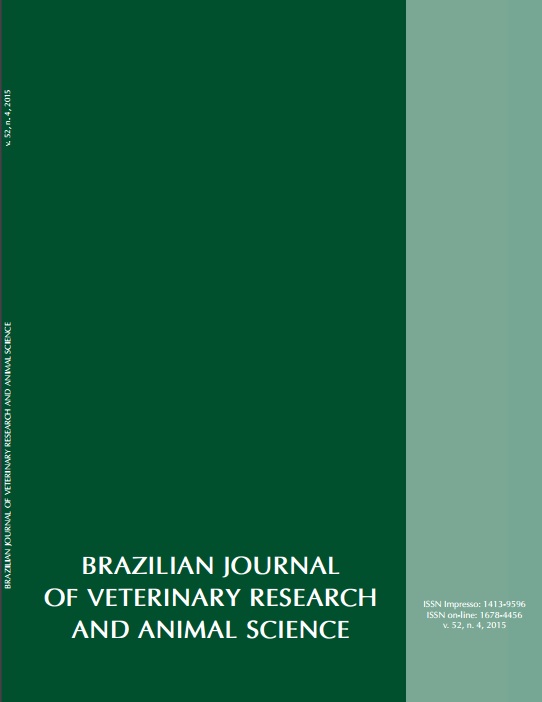Reproductive toxicity of Samanea tubulosa on rats
DOI:
https://doi.org/10.11606/issn.1678-4456.v52i4p342-349Keywords:
Cattle, Fertility, Phytotherapy, Plant, Reproductive toxicologyAbstract
Samanea tubulosa is a plant used for medicinal and feeding purposes. However, ingestion of S. tubulosa pods has been associated with bovine abortion. Thus, the aim of this work was to investigate the effects of diet containing 5% of S. tubulosa pod meal on male and female Wistar rats. Diet was administered to male rats (n = 10) for 60 days before mating. Female rats (n = 10) received the treatment for 30 days, during cohabitation and from gestational day (GD) 0 to GD20. Treated animals were mated with untreated rats. In male rats, plant consumption caused decreased food consumption and 20% fertility index reduction. Litters from treated males presented lower body weight and crown–rump length. Female rats treated with the plant increased water and food intake and body weight. Decreases in fertility, fecundity and gestation indices and increase of placenta weight and mean number of corpora lutea were found. Thus, owing to the possible general and reproductive toxic effects, long-term consumption of S. tubulosa is not recommended for phytotherapic or food purposes.
Downloads
Downloads
Published
Issue
Section
License
The journal content is authorized under the Creative Commons BY-NC-SA license (summary of the license: https://





